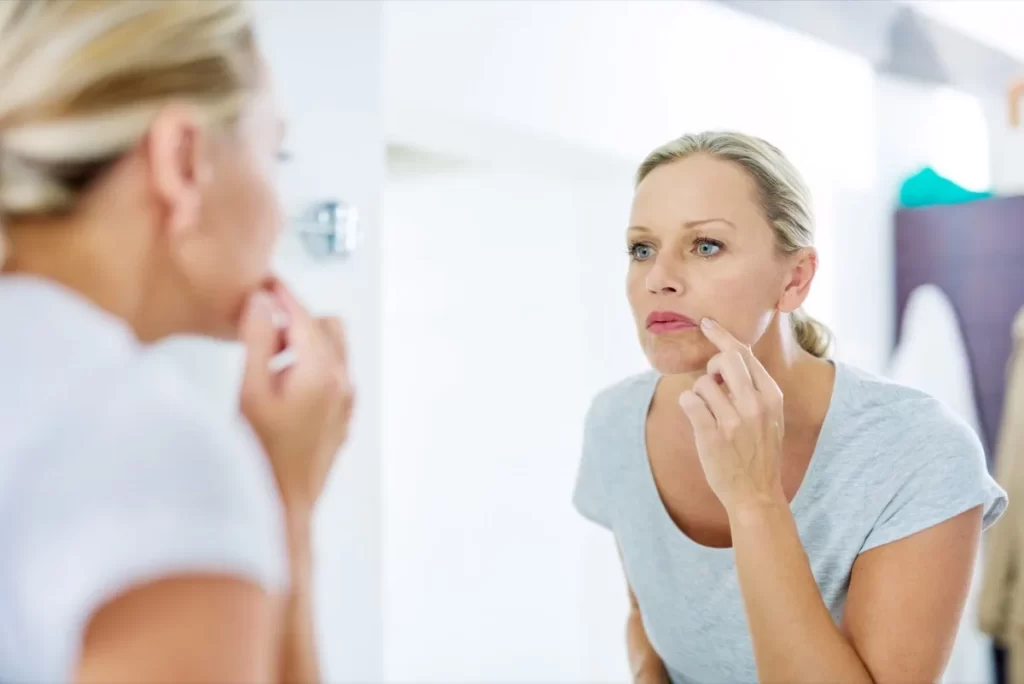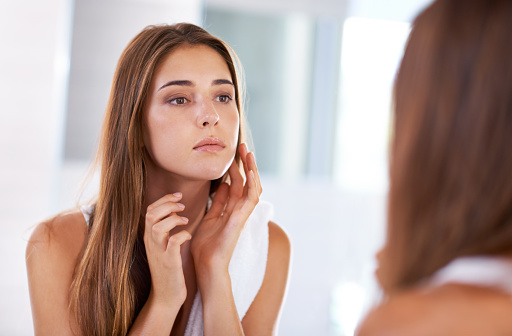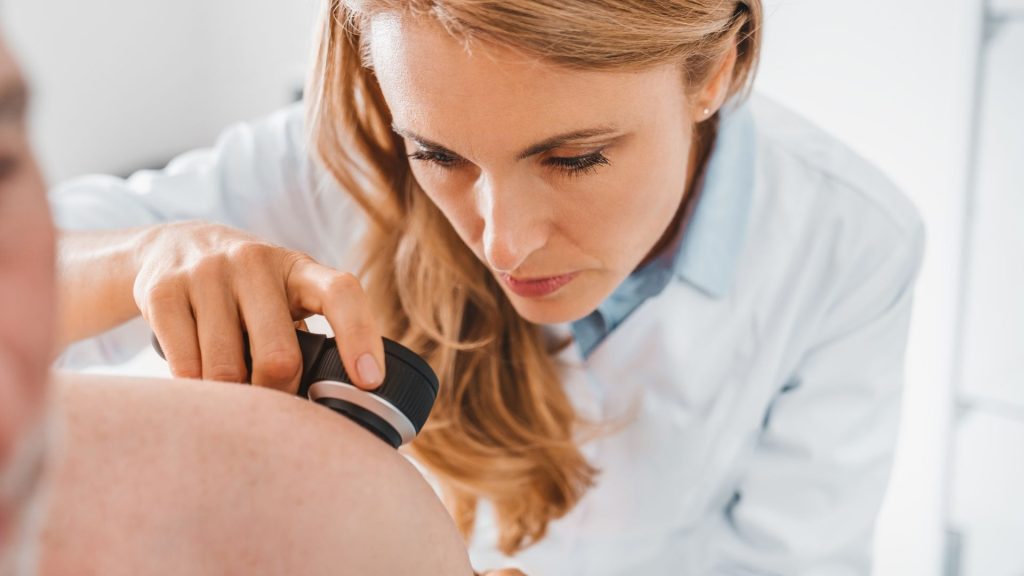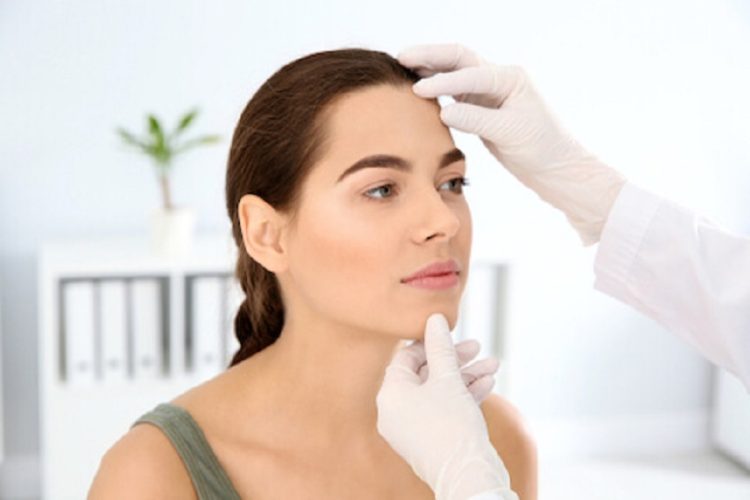Skin cancer is one of the most common types of cancer, but it is also one of the most preventable. Protecting your skin from harmful UV rays is key to reducing your risk of developing skin cancer. In this blog post, we will discuss tips and strategies to prevent skin cancer and keep your skin healthy.
What is Skin Cancer is and How it Develops
Skin cancer is a disease in which skin cells grow abnormally and uncontrollably, forming tumors or lesions.
Skin cancer develops when UV radiation from the sun or tanning beds damages the DNA in skin cells, causing them to rapidly mutate and multiply.
Over time, these abnormal cells can form lumps or masses, which can eventually invade nearby tissues or spread to other parts of the body.
Importance of protecting your skin from harmful UV rays

The sun’s UV rays can damage your skin cells and cause skin cancer. Therefore, it is necessary to protect your skin from UV radiation by taking necessary precautions.
Preventive measures include wearing protective clothing, staying indoors during peak sunlight hours, and applying sunscreen. By protecting your skin, you can reduce your risk of developing skin cancer and maintain healthy skin.
In this Blog, i will provide tips to prevent skin cancer by protecting your skin from harmful UV rays. It will discuss the different types of skin cancer, the risk of UV radiation exposure and the importance of early detection.
Additionally, the article will cover various ways to protect your skin, such as wearing protective clothing, applying sunscreen, and staying hydrated. Finally, you will get the information on what to do if you notice any changes in your skin and what are the treatment options for skin cancer.
Types of Skin Cancer
There are three main types of skin cancer:
- Basal Cell Carcinoma,
- Squamous Cell Carcinoma and
- Melanoma.
Basal cell carcinoma and squamous cell carcinoma are the most common types of skin cancer, and are usually curable if detected early.
Melanoma, although less common, is more aggressive and can be fatal if not caught early.
Risk factors for Skin Cancer
Some risk factors for developing skin cancer include:
- Having fair skin, light colored eyes and blonde or red hair
- History of sunburn or excessive sun exposure
- Living in sunny climates or at high altitudes
- Family history of skin cancer
- Weak immune system
- Exposure to certain chemicals, such as arsenic or coal tar.
Importance of early detection of Skin Cancer

Early detection is important for successful treatment of skin cancer.
It’s also important to get regular skin cancer screenings with a dermatologist, especially if you have any risk factors for the disease. If you notice any changes in your skin or warts, it is important to get checked by a doctor as soon as possible.
Protecting Your Skin
Protecting your skin from harmful UV rays is important to prevent skin cancer. Here are some tips on how to avoid exposure to UV rays:
Avoid exposure to UV rays
- Stay indoors during the sun’s peak hours: UV rays are most intense between 10 am and 4 pm. It is best to stay indoors during these hours, especially if you are in a location with strong sunlight.
- Wear protective clothing: Clothing that covers your skin, such as long-sleeved shirts, pants, and wide-brimmed hats, can help reduce the amount of skin exposed to UV rays.
- Use of sunscreen: Sunscreen helps protect your skin from UV rays. Using a broad-spectrum sunscreen with an SPF of at least 30 is recommended.
Understanding the Different Types of Sunscreen and How to Choose the Right One

There are two types of sunscreen:
- Physical
- Chemical
Physical sunscreens work by creating a barrier on your skin to reflect and scatter UV rays, while chemical sunscreens work by absorbing UV rays.
It’s important to choose the right sunscreen for your skin type and activity level.
Sunscreen should be reapplied every two hours or immediately after swimming or sweating.
The Importance of Seeking Shade When Outdoors: Seek shade under a tree, umbrella, or shade structure when outdoors. This will reduce direct sun exposure on your skin.
Also Check: 7 Ways to Remove White Stains on Face
Other Prevention Tips
Checking your skin regularly
Regularly checking your skin for any changes or abnormalities can help detect skin cancer early. Monthly self-examination of your skin, including areas not exposed to the sun, is recommended.
Protecting Your Eyes and Lips
The skin around your eyes and lips is especially delicate and vulnerable to the sun’s harmful rays. Wearing sunglasses with UV protection and applying lip balm with SPF can help protect these areas from damage.
Staying Hydrated and Eating a Healthy Diet
Staying hydrated and maintaining a healthy diet can support overall skin health. Drinking plenty of water and eating a balanced diet with fruits, vegetables and whole grains can help your skin look and feel healthy.
Avoiding tanning beds
Tanning beds emit harmful UV radiation, which can increase the risk of skin cancer. It is recommended to avoid tanning beds altogether and opt for self-tanning products if you want a sun-kissed glow.
What to Do if You Notice Changes in Your Skin

When it comes to skin cancer, it is important to be vigilant and aware of any changes in your skin. Here are some signs and symptoms to look for:
Signs and symptoms to look for Skin Cancer
- New moles or growths on your skin
- Changes in the color, shape, or size of existing moles
- A sore or lesion that does not heal or keeps coming back
- Itching, bleeding, or discharge from a spot on your skin
If you experience any of these symptoms, it is important to seek medical attention immediately. Early detection is the key to successful treatment and recovery.
Recommended Blog: The Reason Why You can’t Lose Weight
Importance of medical attention
- Skin cancer is very treatable when caught early.
- Delaying treatment can cause the cancer to spread and become more difficult to treat.
- Your dermatologist can examine and biopsy the skin to determine if the changes are cancerous.
Remember, if you’re not sure if a spot on your skin is cancerous or not, it’s better to be safe than sorry. Don’t hesitate to make an appointment with your dermatologist if you notice any changes.
Treatment options for skin cancer
- The treatment you receive depends on the type and stage of skin cancer.
- Some common treatment options include surgery, radiation therapy, and chemotherapy.
- Your dermatologist will work with you to develop a treatment plan tailored to your specific needs.
It’s important to keep in mind that skin cancer treatment can be a journey, but there are many resources and support systems available to help you through the process. Don’t hesitate to reach out to your healthcare provider or support group for guidance and support.
In conclusion, it is crucial to understand the risks of skin cancer and take steps to prevent it. Protecting your skin from harmful UV rays and adopting healthy habits like regular skin checks and avoiding tanning beds can significantly reduce your risk. If you notice any changes in your skin, it is important to seek immediate medical attention.
By taking these precautions, you can protect your skin and reduce your risk of skin cancer. So, make sure to take necessary steps to protect your skin and stay healthy.
EduHealth is a one-stop platform for all your health and wellness needs. We offer a wide range of services, including expert advice on health tips, fitness & wellness, and lifestyle tips. At EduHealth, we believe that everyone deserves to live a healthy and happy life, and we’re committed to helping you achieve that goal.
